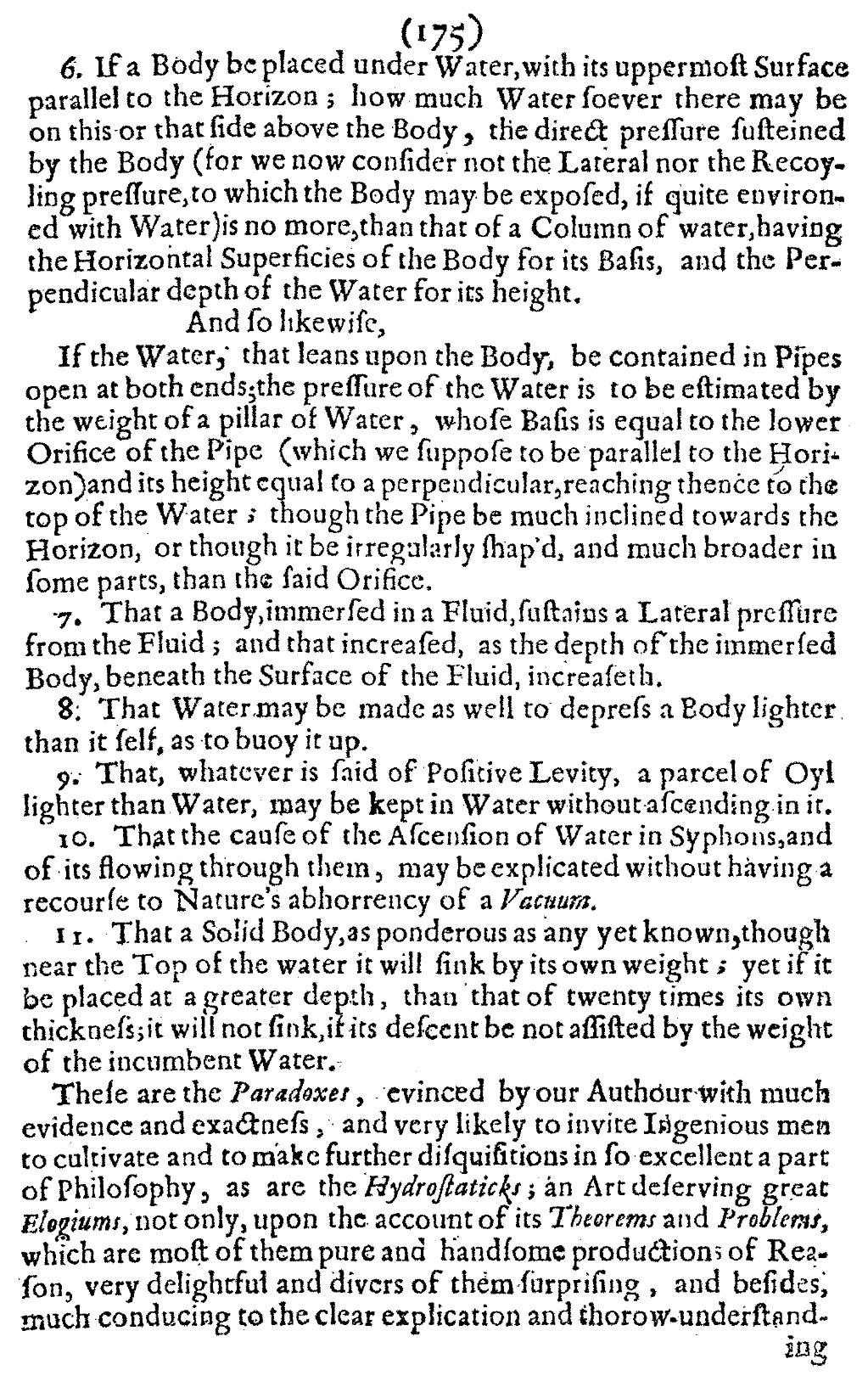(175)
6. If a Body be placed under Water, with its uppermost Surface parallel to the Horizon; how much Water soever there may be on this or that side above the Body, the direct pressure susteined by the Body (for we now consider not the Lateral nor the Recoyling pressure, to which the Body may be exposed, if quite environed with Water) is no more, than that of a Column of water, having the Horizontal Superficies of the Body for its Basis, and the Perpendicular depth of the Water for its height.
- And so likewise,
If the Water; that leans upon the Body, be contained in Pipes open at both ends; the pressure of the Water is to be estimated by the weight of a pillar of Water, whose Basis is equal to the lower Orifice of the Pipe (which we suppose to be parallel to the Horizon) and its height equal to a perpendicular, reaching thence to the top of the Water; though the Pipe be much inclined towards the Horizon, or though it be irregularly shap'd, and much broader in some parts, than the said Orifice.
7. That a Body, immersed in a Fluid, sustains a Lateral pressure from the Fluid; and that increased, as the depth of the immersed Body, beneath the Surface of the Fluid, increaseth.
8. That Water may be made as well to depress a Body lighter than it self, as to buoy it up.
9. That, whatever is said of Positive Levity, a parcel of Oyl lighter than Water, may be kept in Water without ascending in it.
10. That the cause of the Ascension of Water in Syphons, and of its flowing through them, may be explicated without having a recourse to Nature's abhorrence of a Vacuum.
11. That a Solid Body, as ponderous as any yet known, though near the Top of the water it will sink by its own weight; yet if it be placed at a greater depth, than that of twenty times its own thickness; it will not sink, if its descent be not assusted by the weight of the incumbent Water.
These are the Paradoxes, evinced by our Authour with much evidence and exactness, and very likely to invite Ingenious men to cultivate and to make further disquisitions in so excellent a part of Philosophy, as are the Hydrostaticks; an Art deserving great Elogiums, not only, upon the account of its Theorems and Problems, which are most of them pure and handsome productions of Reason, very delightful and divers of them surprising, and besides, much conducing to the clear explication and thorow-understand-
